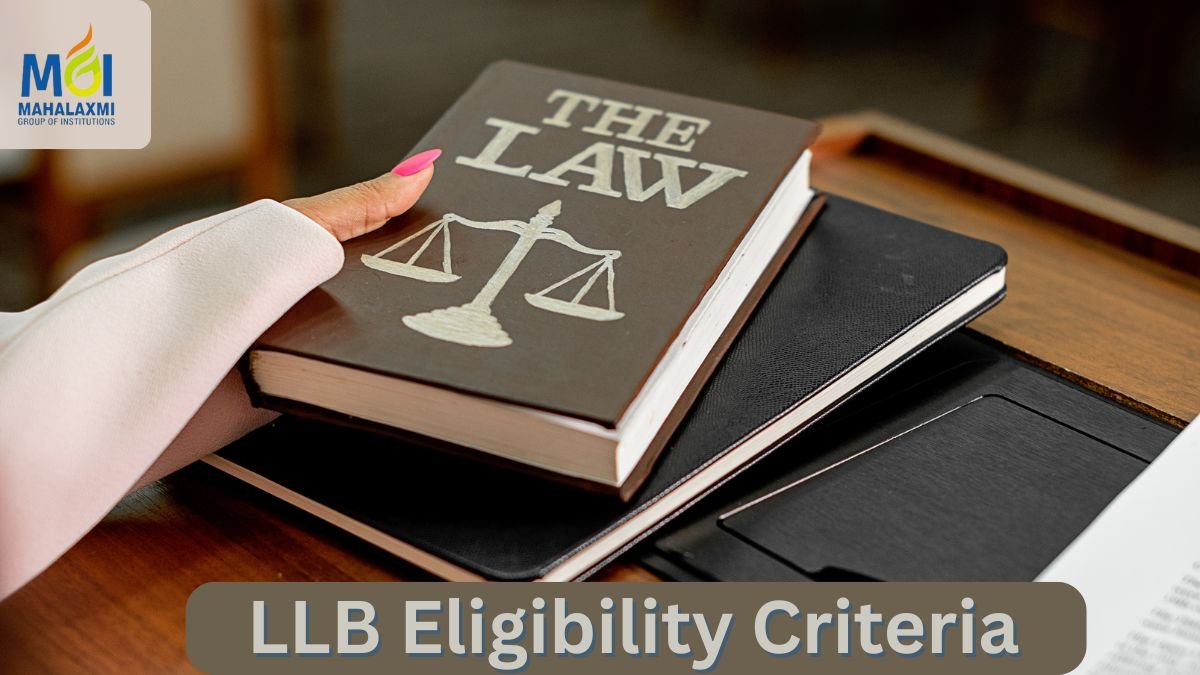L.L.B.
The full form of LL.B is a bachelor…

If you're planning a career in law, you’ve probably searched for LLB eligibility criteria. Many Indian students want to become lawyers, but the confusion starts with the admission rules. Some think you need to clear CLAT, others wonder about age limits. It can all feel a bit too much.
So, let’s clear the air. This guide explains everything about eligibility for LLB in India — in a simple way.
LLB stands for Bachelor of Laws, a professional undergraduate law degree. In India, the 3-year LLB course is available after you complete your graduation. If you're someone who wants to understand the law and help people with legal issues, this course is for you.
The 3-year LLB is different from the 5-year BA LLB. That’s designed for students who want to start law after 12th. Here, we’ll only focus on the 3-year LLB eligibility criteria.
To apply for a 3-year LLB program, you must fulfill the following conditions:
1. Educational Qualification
You don’t need a legal background or a special subject. Even students from B.Tech, medical, or arts can apply.
2. Age Limit
Applications for a three-year LLB programme are accepted at any age. It makes no difference how old you are—21 or 41.
Earlier, there used to be an age bar. But the Bar Council of India (BCI) removed that. So, don’t worry about your age.
3. Entrance Exam Requirement
CLAT, LSAT, or university-level entrance exams are required by certain colleges. But many reputed private law colleges — like MGI Meerut — offer direct admission.
So, if you didn’t prepare for CLAT, don’t panic. You still have options.
4. Nationality
You must be an Indian citizen. Some colleges allow NRI/Foreign students under special categories. However, only Indian nationals are eligible for the majority of regular admissions.
5. Reservation and Relaxation
If you fall into one of the following categories: SC, ST, OBC, or PwD
At MGI, we assist students in applying for such benefits during admission.
Direct LLB admission is available at MGI Meerut based on your graduation grades. You do not need to clear CLAT. Here's what we require:
Our friendly admissions team helps you at every turn.
Required Documents for LLB Admission
Before applying, keep these documents ready:
Submit photocopies and carry originals for verification.
LLB is more than just a degree. It's about logic, discipline, and service. If you like reading, discussing rules, solving real-life problems, and helping people — law is a good fit.
A lawyer doesn't only work in courtrooms. You can work in corporates, government offices, legal publishing, NGOs, and even startups.
After completing your 3-year LLB, you can:
Law is everywhere — and skilled lawyers are in demand.
At MGI Meerut, students get a mix of theory and practice. Here's how we train you:
We believe in making every student court-ready.
These habits help you in college and your future law career.
FAQs – LLB Eligibility Criteria
Q1. Can I pursue LLB after B.Com?
Yes, absolutely. Graduates from any stream can apply for LLB — including commerce, science, and arts.
Q2. What percentage is required for graduation?
You need 45% marks if you're from the general category. SC/ST students need 40%.
Q3. Do I need to give CLAT for a 3-year LLB?
No, not always. Many private colleges like MGI Meerut offer direct admission without CLAT.
Q4. Is there any age limit to apply for LLB?
No, there’s no age restriction as per the latest BCI rules.
Q5. What is the difference between LLB and BA LLB?
LLB is a 3-year course after graduation. BA LLB is a 5-year course after 12th.
Now that you know the full LLB eligibility criteria, check if you meet them. If yes, nothing is stopping you. A career in law is strong; it increases your self-esteem, voice, and social respect. At MGI Meerut, we offer you not just a degree, but a chance to build your purpose.
Apply Now at mgimeerut.com
Take your first step today. Fill the online form or call our team. We’ll help you start your law career with guidance, support, and real training.
